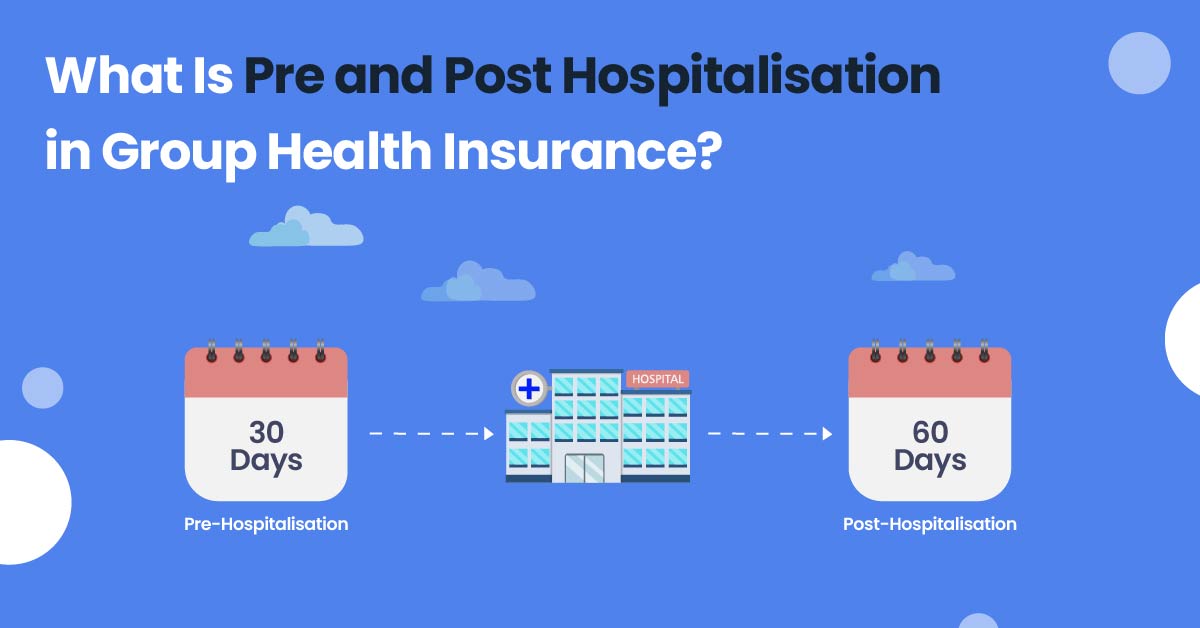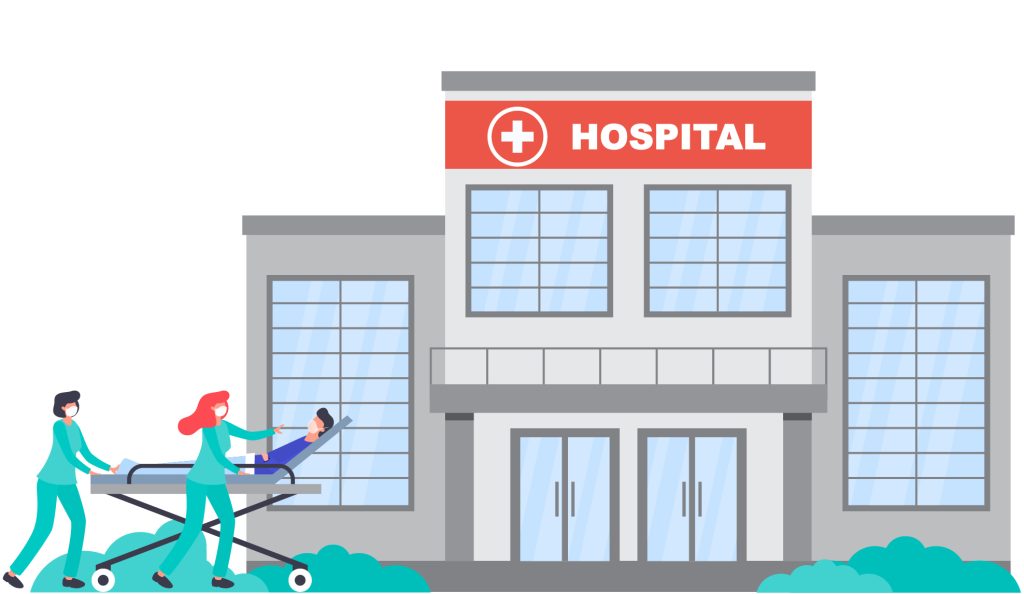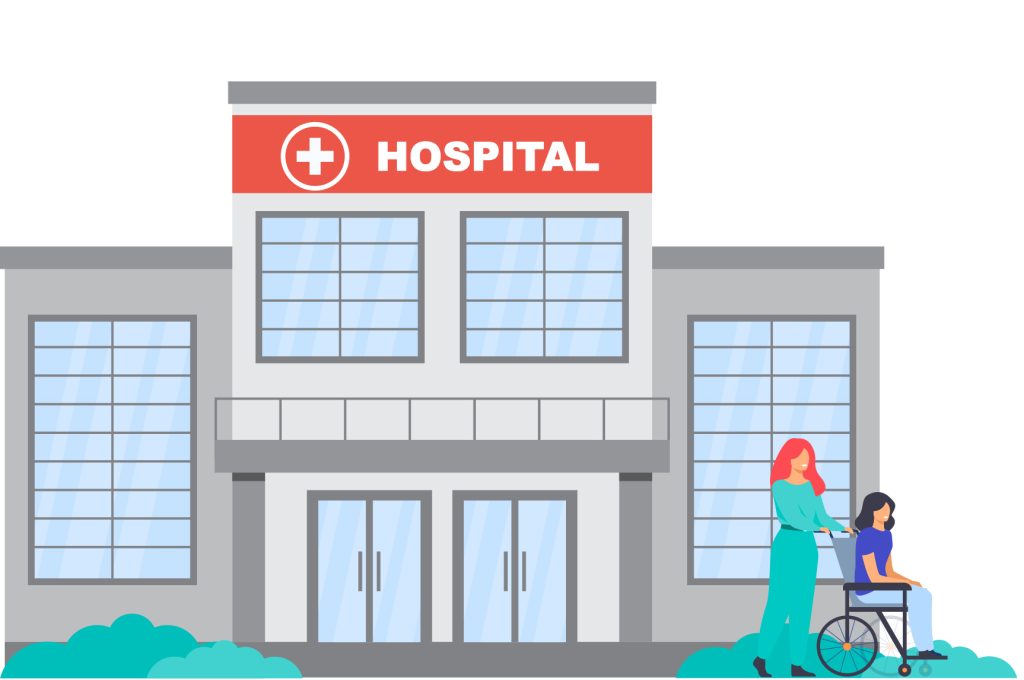
Going through a hospitalization can be a difficult and emotional experience, not only for the patient but also for their loved ones. The journey of medical care starts long before the actual hospitalisation and continues long after the patient has been discharged. It is important to be aware of the different stages of this journey, so that you can be prepared and support your loved ones in the best possible way.
Pre and post hospitalization are two critical periods in a patient’s journey of care. Both stages have a significant impact on the patient’s health, recovery, and overall well-being.
What is Pre-Hospitalisation?

Pre-hospitalization refers to the period before a patient is admitted to the hospital for medical treatment. It is a critical stage in the journey of medical care and it is important for patients and their families to be aware of what to expect and how to prepare. During pre-hospitalization, patients should focus on gathering information, arranging for post-hospitalization care, and preparing for financial issues.
One of the most important aspects that a patient should consider during pre-hospitalization is pre-hospitalization expenses. These expenses refer to any costs that are incurred before the patient is admitted to the hospital. They may include diagnostic tests, doctor consultations, and any other medical expenses related to the preparation for hospitalization. Coverage for 30 days prior to the hospitalization is provided to the insured person. This varies from company to company.
For example, if a patient is hospitalized for three days, their insurance policyThe legal document issued to the policyholder that outlines the conditions and terms of the insurance; also called the ‘policy may consider the expenses incurred during the 15, 30 or 60 days prior to the hospitalization as pre-hospitalization expenses as per the health insurance plan limit. This means that any diagnostic tests, doctor consultations, or prescription medicines that the patient may have incurred during this period may be covered under the pre-hospitalization expenses. However, the prior days may vary from company to company.
Some of the common pre-hospitalization expenses that patients may incur include:
- Diagnostic tests: Patients may be required to undergo several diagnostic tests, such as blood tests, imaging tests, or other diagnostic procedures, to assess their condition and determine the best course of treatment.
- Doctor consultations: Patients may need to visit a doctor or specialist to determine their condition and discuss the treatment options available.
- Prescription medicines: Patients may be required to purchase any prescription medicines that they may need before the hospitalization.
- Travel expenses: Patients may need to travel to a different location for their treatment, and they may incur expenses such as transportation and accommodation.
- Other medical expenses: Patients may incur other medical expenses, such as the cost of medical equipment or supplies, that are necessary for their pre-hospitalization preparation.
It is important for patients to be aware of these pre-hospitalization expenses and to plan for them accordingly. In some cases, insurance may cover these expenses, but it is always best to check with your insurance provider to understand the extent of coverage. If insurance does not cover these expenses, patients may need to make arrangements to pay for them out of pocket.
What is Post-Hospitalisation?

Upon completion of a medical treatment, it is common for patients to require a period of recovery. As such, post-hospitalization coverage is a standard feature of most health insurance policies. This coverage typically extends to consultation, investigation, medication, and diagnostic expenses incurred within a specified time frame, usually between 45-90 days post-discharge. However, it is important to note that this benefit may not apply to out-patient treatments (OPD treatments).
While the hospitalization itself can be a stressful and emotional experience, it is important to also consider the financial aspect of the journey. Post-hospitalization expenses are costs that a patient may incur after being discharged from the hospital and can include things like medication, follow-up appointments, rehabilitation, home care, and medical equipment.
The number of days considered for post-hospitalization coverage varies between health insurance policies. Typically, post-hospitalization coverage extends to medical costs incurred within a specified time frame, which is usually between 45-90 days post-discharge. It is important to check with your health insurance provider to determine the exact coverage period for post-hospitalization expenses.
For example, a patient was hospitalized for 5 days and was discharged on January 1st. If their health insurance policyThe legal document issued to the policyholder that outlines the conditions and terms of the insurance; also called the ‘policy covers post-hospitalization expenses for 60 days, then their post-hospitalization period would be from January 1st to March 1st. During this time, the patient would be eligible for coverage for any necessary follow-up appointments, medication, diagnostic tests, or other medical expenses related to their recovery.
Some of the common post-hospitalization expenses that patients may incur are:
- Follow-up appointments: Patients may need to visit their doctor or specialist for follow-up appointments to monitor their progress and address any lingering concerns or complications.
- Medication: Patients may need to continue taking medication prescribed by their doctor to manage pain, prevent infections, or control other health conditions.
- Diagnostic tests: Patients may need to undergo further diagnostic tests, such as X-rays or blood tests, to monitor their recovery and address any new or recurring health issues.
- Rehabilitation: Patients may need physical or occupational therapy to help them recover from an injury or surgery and regain their strength and mobility.
- Home care: Patients may require home care services, such as nursing care or assistance with activities of daily living, to support their recovery at home.
- Medical equipment: Patients may need to purchase or rent medical equipment, such as crutches, a wheelchair, or a hospital bed, to help them manage their recovery at home.
What is the claim process for Pre and Post Hospitalisation ?
Firstly, it’s important to understand the specific terms of your insurance policyThe legal document issued to the policyholder that outlines the conditions and terms of the insurance; also called the ‘policy and what expenses are covered under pre- and post-hospitalisation claims.
The claim process for pre and post-hospitalization expenses typically involves the following steps:
- Gather necessary documentation: Patients should gather all relevant medical bills, receipts, and other documentation related to their pre and post-hospitalization expenses, including any diagnostic reports or prescription slips.
- Submit a claim form: Patients should complete and submit a claim form to their insurance company. The claim form should include details about the patient, the hospitalization, and the expenses incurred.
- Attach supporting documentation: Patients should attach all relevant supporting documentation to the claim form, including bills, receipts, diagnostic reports, and prescription slips.
- Review by insurance company: The insurance company will review the claim form and supporting documentation to assess the validity of the claim and determine the amount that will be covered.
- Payment of claim: If the claim is approved, the insurance company will make payment directly to the patient, the healthcare provider, or both, as specified in the policyThe legal document issued to the policyholder that outlines the conditions and terms of the insurance; also called the ‘policy terms and conditions.
- Appeal process: If the claim is denied or partially approved, patients may have the option to appeal the decision. Patients should review their insurance policyThe legal document issued to the policyholder that outlines the conditions and terms of the insurance; also called the ‘policy to understand the appeal process and what steps they need to take to challenge a denied claim.
It is important to note that the exact claim process can vary depending on the insurance company and the health insurance policyThe legal document issued to the policyholder that outlines the conditions and terms of the insurance; also called the ‘policy. Patients and their families should carefully review their policyThe legal document issued to the policyholder that outlines the conditions and terms of the insurance; also called the ‘policy and contact their insurance company for more information on the claim process for pre and post-hospitalization expenses.
What are the documents required for pre and post hospitalisation expenses?
All the below-mentioned documents need to be submitted for filing the claim.
- Reimbursement claim form filled by the insured.
- All original medicine bills with doctor’s prescription.
- All investigation reports with films and doctor’s prescription, where the doctor has advised investigation.
- Printed cancelled cheque of the insured person.
- All consultation papers with bills. Make sure you submit all original documents to the insurance or TPA within the restricted timeline. As per the policyThe legal document issued to the policyholder that outlines the conditions and terms of the insurance; also called the ‘policy it can be 7 or 15 days from the last consultation.
Pre and post hospitalization are critical stages in the journey of medical care, and it is important to be informed and prepared to ensure a successful and smooth experience. The journey can be emotional and challenging, but with the right support, patients and their families can get through it and come out stronger on the other side.
Points to remember
Pre and post-hospitalisation claim processes are same as the main hospitalisation claim.
- First of all, no intimation is required in pre and post-hospitalisation.
- All claim documents need to be submitted within the timeline of the policy claim.
- After submission of the claim documents, TPA/Insurer will take time to process the claim.
